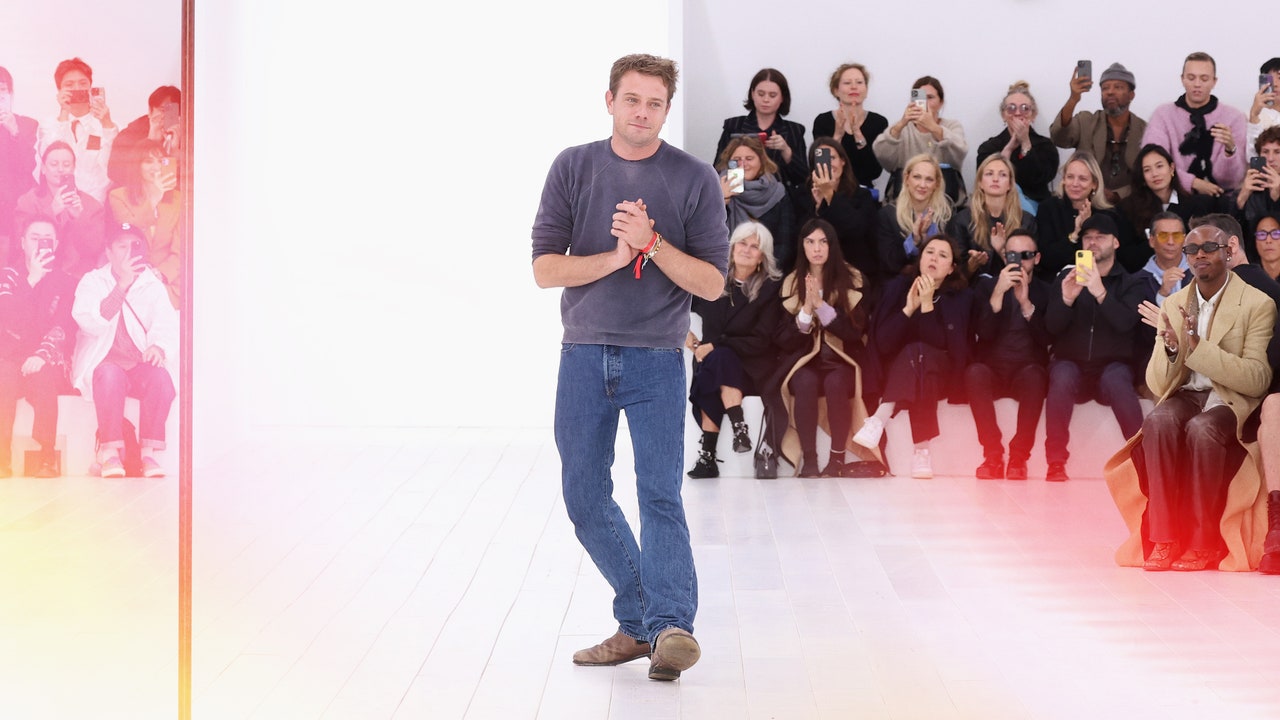Naturally, this has led to rumor after rumor about the next shoe to drop. There are still a few key positions in the field that need to be filled, most notably at Chanel, and marquee free agents in Slimane and ex-Valentino designer Pierpaolo Piccioli, among many others. There has also been widely-reported speculation that Jonathan Anderson, a league leading all-star if there ever was one, will be departing Loewe in the near future for a new role. Depending on who you ask, Dior, Burberry, Maison Margiela, Fendi, Gucci, and Armani are destined for new designers in the near future. Most fashion rumors are wrong, of course, but sources I trust have told me confidently that the entire status quo is wired for demolition.
(A caveat: even if a handful of these scenarios play out, we probably won’t see a wave of new clothes until mid-next year—Rider’s first day at Celine isn’t until January, and Chanel and others can afford to wait to name a new designer. If you’re wondering what Rider is up to in the meantime, I saw him chatting with Anderson at Sunday night’s A24 afterparty for the New York premiere of Queer. Anderson, who designed the costumes for the Luca Guadagnino flick, offered a hearty congratulations to his newly-minted LVMH colleague.)
If history is any indication, even a few big shake ups could shape the future. After all, the first vibe shift placed you, the consumer, at the center of fashion. As Abloh and Jones in particular embraced popular culture, the walls surrounding once-exclusive maisons came down en masse, and fashion made long-overdue inroads with Hollywood, music (especially hip-hop), and sports, turning the whole spectacle into its own kind of spectator sport. Brands began balancing exclusivity with community; elitism was no longer cool.
If that inflection point was about access, this one will hinge, I think, on taste. Demna (who for the record just re-signed his contract with Balenciaga, per WWD) is spot-on: the fashion boom has created too much stuff at the expense of originality. In the past couple of years there’s been a dull flatness creeping in on menswear, a dearth of surprise and subversion as brands repeat now-tiresome formulas. Not to mention an over reliance on retrograde marketing that has turned off increasingly sophisticated consumers. (Another collaboration? An expensive, unnecessary runway show? More long, swooshy trousers?)
The powers that be appear to have gotten the message. Michele, Ackermann, and Burton are all artists in a true sense—their work inspires people to elevate not just what they wear but how they live. Michele’s clothing invokes a sense of erudite pleasure, and Ackermann proposes a vision of swashbuckling, globe-trotting gusto. They all bring independent creative spirits and lots of experience to the job of captivating a fickle audience.
By that standard, it’s no wonder why Anderson’s name keeps floating to the top. In his decade at Loewe, Anderson has consistently proposed new ways of thinking about clothing. Watching a Loewe or JW Anderson show can feel more like visiting a gallery full of buzzy contemporary art than anything else—his collections are packed with ideas about, among other things, the relationship between objects and desire. Which in turn creates an immense amount of desire in the market. According to the industry-standard Lyst Index, Loewe is the reigning hottest brand in the world right now. (Which raises another question: if he leaves, what do you do about Loewe!?)
Contrast Anderson’s fortunes with those of the Abloh-founded Off-White, which routinely topped the Lyst Index from 2018 through 2020. Last month, the brand was quietly sold by LVMH to Bluestar Alliance, a company that specializes in licensing flailing clothing labels. There’s a lot to unpack about the diminishing of Off-White, which had several post-Abloh moments of clarity despite reported commercial struggles. Suffice it to say it’s much more complicated than the decline of “streetwear.” I would argue instead that Off-White, which propelled Abloh to the top LV job, couldn’t define itself as the door closed on the era of men’s fashion that Abloh helped catalyze. The only question now is when the next door is going to open.
See all of our newsletters, including Show Notes, here.

